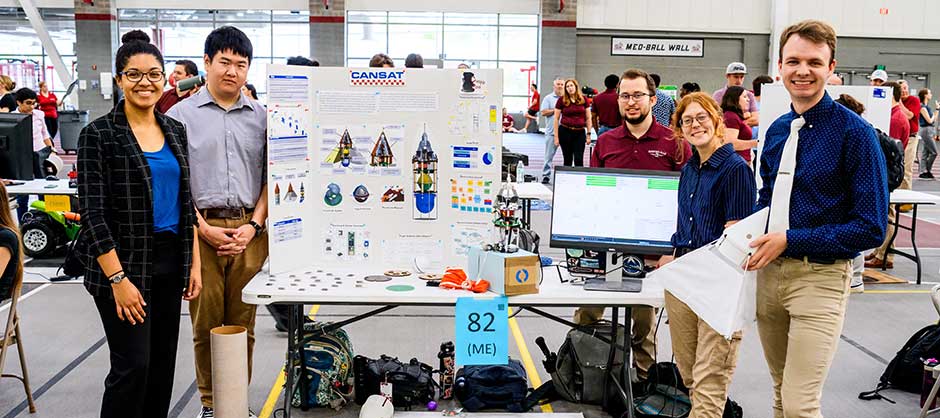If you would like to propose a project read further information below.
- Competition Teams
If you are involved in a competition team and want to work on a competition team project for capstone, fill out the project request form. You need to identify all the students who will be on the competition team, and each student must sign the proposal indicating that they agree with the scope of the project. You also need to obtain a signature from the president of the competition team stating that there will be funding available to support your activities. Finally, you need to get a faculty member’s signature who will serve as the client for your project. Once you have all these signatures gathered along with the project description, you may submit it to mechanical engineering capstone coordinator, Dr. Shraddha Sangelkar.
- Entrepreneurial Projects
Students with entrepreneurial project ideas they wish to pursue as a capstone project are encouraged to explore this opportunity. Limited funding is available to support such initiatives, and we can assist in determining whether your idea is suitable for a capstone project.
To facilitate the process, please contact mechanical engineering capstone coordinator, Dr. Shraddha Sangelkar. Prior to your meeting, fill out a brief description of your project and include an estimate of the anticipated prototyping costs.
To enhance the likelihood of securing funding, it is advantageous to identify potential team members for your project—ideally a group of four students. We look forward to helping you bring your entrepreneurial vision to life as part of your capstone experience.
- Internship Inspired Project Partnership
Some students may identify potential capstone project opportunities with the companies they are working with during their internships or co-ops. Most capstone projects typically involve design, build, and test phases, culminating in the construction of a functional prototype.
By becoming a project sponsor, the company gains the opportunity to collaborate with you throughout the academic year, and you will have the first choice to work on the project you helped bring forward. These projects are typically funded by the company. To provide your employer with more information about sponsoring a capstone project, please direct them to visit this page.
Non-disclosure and IP agreements are available upon request. NDA projects are closed off to the general public. If you have an idea but are not sure if it is appropriate for a capstone project, fill out this form and email it to mechanical engineering capstone coordinator Dr. Shraddha Sangelkar.
